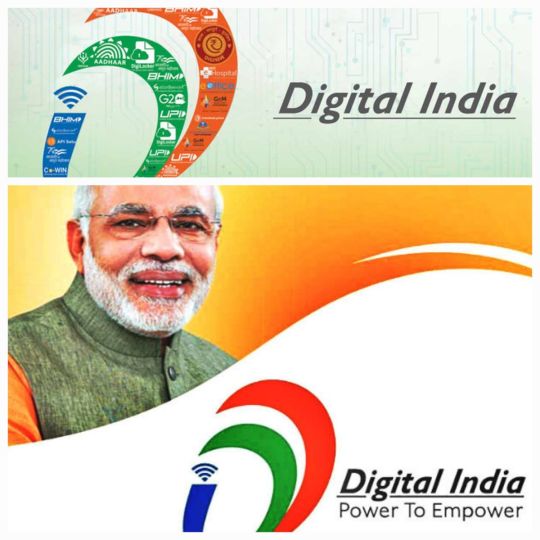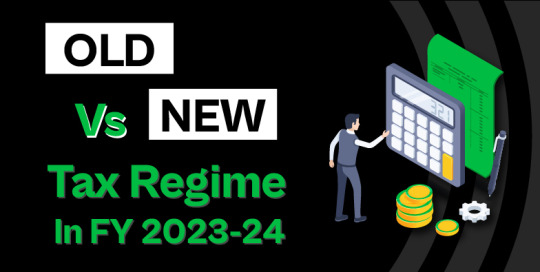#government initiatives
Explore tagged Tumblr posts
Text
Love Deferred: China's Declining Marriages and the Looming Demographic Crisis
In the heart of Beijing, where ancient traditions intertwine with modern aspirations, a profound transformation has been unfolding. By the end of 2024, the city's pulse beat with the energy of progress. Yet, beneath the surface, a quieter narrative emerged—one of love, commitment, and the choices of a generation.
Li Wei, a 29-year-old software engineer, epitomizes the modern Chinese professional. With a promising career and a comfortable lifestyle, he seems to have it all. However, as he observes his peers, he notices a shared hesitation. Marriage, once a universal milestone, has become a topic of deliberation.
Recent data reveals a startling trend: only 6.1 million couples registered for marriage in 2024, a 20.5% decline from the previous year. This marks the lowest number since records began in 1986. Read more
#China marriage decline#2024 marriage statistics#economic impact on marriage#demographic crisis#aging population#Li Wei case study#government initiatives#India demographic comparison
0 notes
Text
Transforming Rural Economies through Technology
Transforming Rural Economies through Technology @neosciencehub #technology #RuralEconomies #BudgetFY25 #neosciencehub
In a bid to invigorate rural economies and reduce the increasing trend of rural-urban migration, the Union government has launched several initiatives, among which the “Rural Prosperity and Resilience” program stands out. This program is designed to leverage technology and improve infrastructure, aiming to enhance the quality of life in rural areas while promoting sustainable economic…
0 notes
Text
youtube
#government intervention#government initiatives#government interference#government inefficiency#government issue#Youtube
0 notes
Text
Govt’s efforts in checking PDS rice smuggling fruitful: Minister Nadendla
Civil Supplies Minister Nadendla Manohar organised a review meeting with representatives of port workers, transporters, and exporters at Kakinada Collectorate on Tuesday. Kakinada City MLA Vanamadi Venkateswara Rao also participated.
#Minister Nadendla#Public Distribution System#Rice Smuggling Prevention#Government Initiatives#Food Security#PDS Reforms#Anti-Corruption Measures#Smuggling Control
0 notes
Text
Jharkhand's Maiyan Samman Yojana Faces Technical Glitches on First Day
Technical issues hamper the application process for the Maiyan Samman Yojana, causing disappointment among beneficiaries. Jharkhand’s new Maiyan Samman Yojana, aimed at providing pensions to women aged 21 to 49, faced technical difficulties on the first day, leaving many applicants disappointed. JAMSHEDPUR – The Jharkhand government launched the Maiyan Samman Yojana to provide a monthly pension…
#Anganwadi workers#application process#जनजीवन#beneficiary support#Government Initiatives#Jamshedpur News#Jharkhand government#Life#Maiyan Samman Yojana#Rekha Rani#technical glitches#women&039;s pension scheme
0 notes
Text
Understanding the Benefits of Investing in India's Tech Startups in 2024

In recent years, India's startup ecosystem has experienced exponential growth, fueled by a combination of factors such as favorable demographics, increasing internet penetration, government initiatives, and a thriving entrepreneurial culture. Among the various sectors, the tech startup ecosystem in India has emerged as particularly attractive for investors seeking high growth potential and innovation-driven opportunities. In this blog, we'll explore the benefits of investing in India's tech startups in 2024, highlighting key factors driving the sector's growth and the opportunities it presents for investors.
1. Vibrant Ecosystem and Innovation Hub:
India's tech startup ecosystem has evolved into a vibrant hub of innovation, entrepreneurship, and collaboration. Major cities like Bangalore, Mumbai, and Delhi-NCR have emerged as hotspots for tech startups, fostering a conducive environment for creativity, networking, and knowledge exchange. The ecosystem is characterized by a diverse range of startups operating across sectors such as e-commerce, fintech, healthtech, edtech, and deeptech, offering investors a wide array of investment opportunities.
Here's a deeper look at what makes this ecosystem so dynamic and attractive for investors:
1. Thriving Startup Hubs:
Major cities like Bangalore (also known as the Silicon Valley of India), Mumbai, and Delhi-NCR have emerged as thriving startup hubs, attracting entrepreneurs, investors, and talent from across the country and around the world. These cities offer a conducive environment for startups to establish their presence, access resources, and network with industry peers, mentors, and investors.
2. Diverse Range of Startups:
India's tech startup ecosystem is characterized by a diverse range of startups operating across various sectors and verticals. From e-commerce and fintech to healthtech, edtech, agritech, and deeptech, startups in India are addressing a wide array of market needs and opportunities. This diversity not only reflects the breadth of innovation but also offers investors a plethora of investment options to choose from.
3. Culture of Innovation and Risk-Taking:
India's entrepreneurial culture encourages innovation, risk-taking, and experimentation, fostering a spirit of creativity and resilience among startups. Entrepreneurs are not afraid to disrupt traditional industries, challenge existing norms, and push the boundaries of technology to solve complex problems and create value. This culture of innovation attracts investors who seek high-growth opportunities and are willing to support disruptive ideas and visionary founders.
4. Collaboration and Knowledge Exchange:
The startup ecosystem in India thrives on collaboration, knowledge exchange, and community building. Startup incubators, accelerators, co-working spaces, and networking events play a crucial role in facilitating interactions between startups, investors, industry experts, and ecosystem enablers. These platforms provide startups with access to mentorship, funding, and market insights, while also fostering a culture of learning, sharing, and mutual support.
2. Large and Growing Consumer Market:
India's massive population, increasing internet penetration, and rising disposable incomes have created a fertile ground for tech startups to thrive. With over 1.3 billion people, India represents one of the largest consumer markets globally, offering a vast customer base for startups to target and scale their products and services. Investors can capitalize on India's demographic dividend by backing startups that cater to the evolving needs and preferences of Indian consumers across urban and rural areas.
Here's why this aspect is crucial for investors:
1. Massive Population:
India’s vast population translates into a huge consumer base for startups to target and serve. With a large addressable market, startups have the potential to reach millions of customers across urban and rural areas, driving adoption and revenue growth.
2. Increasing Internet Penetration:
India has witnessed a rapid increase in internet penetration in recent years, driven by factors such as falling data costs, smartphone proliferation, and government initiatives like Digital India. As more people come online, there is a growing demand for digital products and services, creating opportunities for startups to innovate and disrupt traditional industries.
3. Rising Middle Class and Disposable Incomes:
The rising affluence of India's middle-class population has led to increased discretionary spending on consumer goods and services. As incomes rise and lifestyles evolve, there is a growing demand for aspirational products, premium services, and lifestyle enhancements. Startups that cater to the needs and preferences of this burgeoning middle class stand to benefit from their purchasing power and willingness to adopt new technologies.
4. Urbanization and Changing Consumption Patterns:
India's ongoing urbanization trend is reshaping consumption patterns and driving demand for urban-centric products and services. From on-demand delivery and mobility solutions to smart homes and digital entertainment, startups are capitalizing on urban consumers' preferences for convenience, efficiency, and quality of life enhancements. By tapping into urban markets, startups can unlock significant growth opportunities and build scalable business models.
5. Rural Market Potential:
While urban markets offer significant growth potential, India's rural areas present untapped opportunities for startups to address unmet needs and capture emerging demand. With over 65% of India's population residing in rural areas, there is a growing appetite for rural-focused solutions in areas such as agriculture, healthcare, education, and financial inclusion. Startups that can tailor their offerings to rural consumers' requirements and affordability stand to gain a competitive advantage in this vast and underserved market.
6. Demographic Dividend:
India's youthful demographic profile, with a large population of millennials and Gen Z, presents a demographic dividend for startups targeting younger consumers. These digital natives are tech-savvy, digitally connected, and increasingly influential in shaping consumer trends and preferences. Startups that cater to the needs and aspirations of the youth demographic can build loyal customer bases and drive viral adoption of their products and services through social media and digital channels.
3. Rapid Digitization and Technological Adoption:
The acceleration of digitization and technological adoption in India has opened up new avenues for tech startups to disrupt traditional industries and drive innovation. Factors such as the proliferation of smartphones, affordable data plans, and government initiatives like Digital India have fueled the demand for digital solutions across sectors such as e-commerce, digital payments, healthtech, and agritech. Investors can leverage this trend by investing in startups that leverage technology to address market gaps, improve efficiency, and enhance customer experience.
4. Government Support and Policy Reforms:
The Indian government has taken several initiatives to support the growth of the startup ecosystem and attract investment in the sector. Programs such as Startup India, Make in India, and Atmanirbhar Bharat aim to provide startups with access to funding, mentorship, regulatory support, and market opportunities. Additionally, recent policy reforms aimed at easing compliance requirements, simplifying taxation, and promoting foreign investment have further boosted investor confidence in India's startup ecosystem.
5. Access to Talent and Expertise:
India is home to a large pool of skilled professionals, including engineers, developers, designers, and business professionals, who contribute to the success of the country's tech startups. The availability of talent with diverse skill sets and domain expertise enables startups to build innovative products, scale operations, and compete on a global scale. Investors can benefit from India's talent pool by backing startups with strong leadership teams and a track record of execution and innovation.
6. Potential for High Returns and Exits:
Investing in startups in India offers the potential for high returns and lucrative exit opportunities for investors. As startups grow and mature, they attract interest from venture capital firms, private equity investors, and strategic acquirers looking to capitalize on their growth potential. Successful exits through IPOs, mergers, or acquisitions can generate significant returns for early-stage investors, making India's tech startup ecosystem an attractive asset class for investment portfolios.
In conclusion, investing in India's tech startups in 2024 presents a compelling opportunity for investors looking to capitalize on the country's growing entrepreneurial ecosystem, large consumer market, rapid digitization, and government support. By backing innovative startups with strong leadership teams, scalable business models, and disruptive technologies, investors can not only generate attractive returns but also contribute to India's economic growth and technological advancement. As India continues to emerge as a global innovation hub, the potential for investment in its tech startup ecosystem remains promising for investors seeking exposure to high-growth opportunities in the digital age.
This post was originally published on: Foxnangel
#investing in india#tech startups#startup ecosystem#government initiatives#tech startups in india#investment opportunities#consumer market#digital india#startup india#invest in india startups#foxnangel
0 notes
Text
How the Government is Promoting Electric Vehicles in India
Read now how the Indian government is paving the way for a greener and more sustainable future through its promotion of electric vehicles. With initiatives such as subsidies, tax breaks, and charging infrastructure development, going green has never been easier or more affordable in India! Join the movement towards cleaner transportation today.
0 notes
Text
Empowering India's Digital Future: Major Initiatives and Milestones
Empowering India's Digital Future: Major Initiatives and Milestones #DigitalIndia #DigitalTransformation #TechnologyInIndia #GovernmentInitiatives #DigitalEconomy
Digital India is a transformative initiative launched by the Government of India with the vision of turning the country into a digitally empowered society and a knowledge economy. Since its inception in 2015, this flagship program has made significant strides in leveraging technology to enhance governance, improve citizen services, and bridge the digital divide.Key Objectives1. Digital…

View On WordPress
0 notes
Text
Empowering Micro Enterprises: MSME Minister Launches Rs 20 Lakh Scheme for GST-Exempted Units Under CGTMSE
Transformative Initiative for Informal Micro Enterprises (IMEs) In a groundbreaking move, MSME Minister Narayan Rane has introduced a revolutionary scheme specifically designed for Informal Micro Enterprises (IMEs), with the aim of bolstering their access to credit facilities and alleviating financial constraints. Launched under the esteemed Credit Guarantee Fund Trust for Micro and Small…

View On WordPress
#MSME Minister#Narayan Rane#Rs 20 Lakh Scheme#GST-Exempted Micro Units#CGTMSE#Financial Inclusivity#Formalization Drive#Udyam Portal#Digital Ecosystem#MSE Sector#Priority Sector Lending#Credit Facilities#Financial Support#Collateral-free Loans#economic growth#government initiatives
0 notes
Text
PVC Suppliers in India: Navigating the Landscape of a Growing Industry

India's PVC (Polyvinyl Chloride) industry has been experiencing a significant surge in demand, driven by the country's growing infrastructure, construction, and consumer goods sectors. This 1000-word article provides an insightful exploration into the landscape of PVC suppliers in India, examining the key players, market dynamics, challenges, and future prospects.
Overview of India's PVC Market
India ranks as one of the world's largest consumers of PVC, primarily used in the construction industry for pipes, fittings, profiles, and cables. The demand is also fueled by the automotive, healthcare, and packaging sectors. This burgeoning demand has given rise to a vast network of PVC suppliers across the country, ranging from large-scale manufacturers to smaller, specialized distributors.
Key Players in the Indian PVC Industry
Reliance Industries Limited: As one of India's largest conglomerates, Reliance Industries is a major player in the PVC market, known for its high-quality resin and compounds.
Finolex Industries Ltd: Finolex stands out as one of the leading manufacturers and suppliers of PVC pipes and fittings in India, catering to a wide range of industries.
Supreme Industries Limited: Supreme is renowned for its extensive range of PVC products, including pipes, fittings, and profiles.
Chemplast Sanmar Limited: This company specializes in the production of suspension PVC resin and is known for its innovative and high-quality products.
Regional Hubs of PVC Supply
The PVC supply chain in India is strategically spread across various regions, with significant hubs in states like Gujarat, Maharashtra, and Tamil Nadu. These regions host major manufacturing units and distribution centers, benefiting from robust infrastructure and connectivity.
Market Dynamics and Trends
The Indian PVC market is influenced by several factors, including:
Rapid Urbanization: India’s urbanization is driving demand for PVC in construction and infrastructure projects.
Government Initiatives: Programs like 'Make in India' and 'Smart Cities Mission' positively impact the PVC industry by boosting demand.
Import Dependence: Despite local production, India relies heavily on PVC imports to meet its demands, primarily from countries like China, Japan, and the USA.
Challenges Faced by PVC Suppliers in India
PVC suppliers in India face a myriad of challenges:
Raw Material Price Volatility: Fluctuations in global oil prices significantly impact the cost of PVC production.
Environmental Concerns: There is increasing scrutiny on the environmental impact of PVC, pushing suppliers towards sustainable practices.
Competition from Alternative Materials: The rise of alternative materials poses a competitive threat to the PVC market.
Innovation and Sustainability in PVC Supply
To stay competitive, Indian PVC suppliers are focusing on innovation and sustainability:
Eco-friendly Products: Development of lead-free and phthalate-free PVC products is on the rise.
Recycling Initiatives: Efforts are being made to establish effective PVC recycling systems to reduce environmental impact.
Advanced Manufacturing Technologies: Adoption of cutting-edge technologies for efficient and quality PVC production.
The Role of Government and Regulatory Bodies
The Indian government and regulatory bodies play a crucial role in shaping the PVC industry:
Policy Frameworks: Policies promoting domestic manufacturing and environmental protection impact PVC production and supply.
Quality Standards: Implementation of stringent quality standards ensures the reliability and safety of PVC products.
Future Prospects of PVC Suppliers in India
The future of PVC suppliers in India looks promising, driven by:
Increasing Demand: Continued growth in key sectors like construction and infrastructure ensures a steady demand for PVC.
Export Potential: With improvements in quality and production capacity, Indian PVC suppliers can tap into international markets.
Technological Advancements: Embracing new technologies will enable suppliers to enhance production efficiency and product quality.
Conclusion
India’s PVC suppliers are at a crucial juncture, with vast opportunities driven by market demand and challenges posed by environmental concerns and global competition. The industry's future hinges on the suppliers' ability to innovate, embrace sustainability, and navigate market dynamics effectively. As India continues to develop its infrastructure and industrial capacities, the role of PVC suppliers becomes increasingly vital, making them key contributors to the nation's economic growth and material innovation.
0 notes
Text
#EV Car Sales#India’s electric vehicle#Government Initiatives#Environmental Awareness#Technological Advancements
0 notes
Text
With the increasing acceptance and usage of cryptocurrencies, the financial industry is witnessing a profound transformation. Cryptocurrencies, formerly thought to be a far-flung idea, are now widely accepted, and the Middle East is no exception. This post will investigate the driving forces behind the Middle Eastern mainstreaming of cryptocurrencies. The Rising Potential of Cryptocurrency to Go…

View On WordPress
0 notes
Text
Unveiling The Potential Of MSMEs In Driving India's Economic Progress
In the vast landscape of India's economy, Micro, Small, and Medium Enterprises (MSMEs) are emerging as the unsung heroes. These small businesses play a crucial role in fostering economic growth, generating employment opportunities, and nurturing innovation across diverse sectors. Let's delve into the untapped potential of MSMEs and their impact on India's progress.

1. Backbone Of India's Economy
MSMEs form the backbone of India's economy, contributing significantly to its GDP and employment generation. They constitute over 90% of the industrial units in India and employ over 40% of the country's workforce.
With their inherent flexibility, MSMEs have the ability to adapt quickly to market demands, fueling economic growth and bolstering the nation's development.
Also Read: Top 5 Personal Loan Providers In India
2. Employment Generation And Inclusivity
One of the most significant advantages of MSMEs is their potential to generate employment opportunities, particularly in rural and semi-urban areas. These enterprises have the ability to absorb the surplus labor force and provide livelihoods to marginalized sections of society.
By promoting inclusivity, MSMEs empower individuals, especially women, and youth, to participate actively in economic activities, leading to social upliftment and reducing income disparities.
3. Catalyst For Innovation And Entrepreneurship
MSMEs are often hubs of innovation and entrepreneurship. With their agility and resourcefulness, they can experiment with novel ideas, foster technological advancements, and drive sectoral growth.
By embracing digital technologies and adopting innovative business models, MSMEs are paving the way for disruptive changes across various industries. They are at the forefront of creating a conducive environment for startups, encouraging a culture of risk-taking, and fostering a vibrant entrepreneurial ecosystem in India.
Also Read: NBFCs Vs Banks: Which One Is Better For Business Loans?
4. Boosting Exports And Atmanirbhar Bharat
MSMEs play a crucial role in strengthening India's position in the global market. They contribute significantly to the country's exports, promoting trade and earning foreign exchange.
The government's "Atmanirbhar Bharat" (self-reliant India) initiative further emphasizes the importance of MSMEs by encouraging local manufacturing and reducing dependency on imports. By leveraging their unique capabilities, MSMEs can enhance India's competitiveness and contribute to the nation's economic sovereignty.
5. Challenges And Government Initiatives
While MSMEs possess immense potential, they face several challenges such as limited access to finance, lack of adequate infrastructure, and regulatory burdens. To address these issues, the Indian government has introduced various initiatives, including the Atmanirbhar Bharat Package, collateral-free loans, and digital platforms like Udyam Registration.
These measures aim to provide easier credit, streamline processes, enhance market access, and promote the overall growth and sustainability of MSMEs.
Also Read: A Comprehensive Guide To Different Types Of Loans Available In India
Summary
MSMEs hold the key to India's economic progress. By harnessing their potential, we can unlock immense employment opportunities, drive GDP growth, and enhance India's competitiveness in the global marketplace. Supporting and nurturing MSMEs is crucial for a prosperous and inclusive future.
0 notes
Text
Jharkhand Aims to Boost Irrigation Coverage
CM Champai Soren Pushes for Modern Irrigation Technologies The Jharkhand government is intensifying efforts to expand irrigation facilities, with a focus on innovative solutions to reach every farm in the state. RANCHI – Chief Minister Champai Soren conducted a high-level review meeting of the Water Resources Department, emphasizing the need to accelerate irrigation projects across…

View On WordPress
#agricultural development#राज्य#Champai Soren#Farmer Welfare#Government Initiatives#Jharkhand irrigation projects#rural infrastructure#solar-powered irrigation#state#sustainable farming#underground pipeline irrigation#water resource management
0 notes
Text
This has been an absolutely horrible couple weeks for the Jewish and Israeli community, so I want to throw in at least a tiny bit of hope in here. Amina Hassouna, the Bedouin girl who was severely hurt in Iran’s missile attacks, has been recovering well and seems to be in good condition! She is described as being ‘fully conscious’ and ‘communicating and smiling’. Two bomb shelters have been placed in Al-Fura, the town that she and her family are from, as well.
#ישראבלר#ישראל#jumblr#(I know technically it’s not but I think people will be happy to see this)#also#putting this in the tags— I don’t want to focus on politics because this news is more important right now#but I do truly hope that this will initiate stronger moves towards protecting Bedouin towns and villages#many of them are unrecognised and do not have bomb shelters despite being there for decades#the treatment of Bedouins by the government in general needs to vastly improve#hopefully there will be proper steps in the future towards improving conditions for these towns#like I’m trying to be mild about this because it’s a subject that makes me very upset and I don’t want to go on an angry rant lol#like I said— hopefully things’ll to start change in a few years if the next government can please form a coalition not full of crazy people#if you want to read more about Amina and her family the Times of Israel has quite a few articles btw
434 notes
·
View notes
Text
Choosing Between Old and New Tax Regime: Navigating the Maze
Choosing Between Old and New Tax Regime Navigating the intricacies of tax regimes can be akin to walking through a labyrinth. The Union Budget of 2023 has thrown in a twist by making the new tax regime the default, complicating decisions for taxpayers who now need to actively opt for the old regime. Understanding the New Tax Regime In the new income tax regime, the government has revamped rates…

View On WordPress
#basic exemption limit#CBDT#changing regulations#comparative analysis#corporate income#corporate landscape#exemptions not allowed#final thoughts#financial literacy#financial planning#fiscal year#government initiatives#government steps#implications of tax shift#income tax#individual taxpayers#online tools#paradigm shift in taxation#personal decision#professional advice#reduced tax rates#simplification and planning#small businesses#strategic planning#tax deductions#Tax Exemptions#tax rebate#tax regime#tax slabs#Union Budget 2023
0 notes